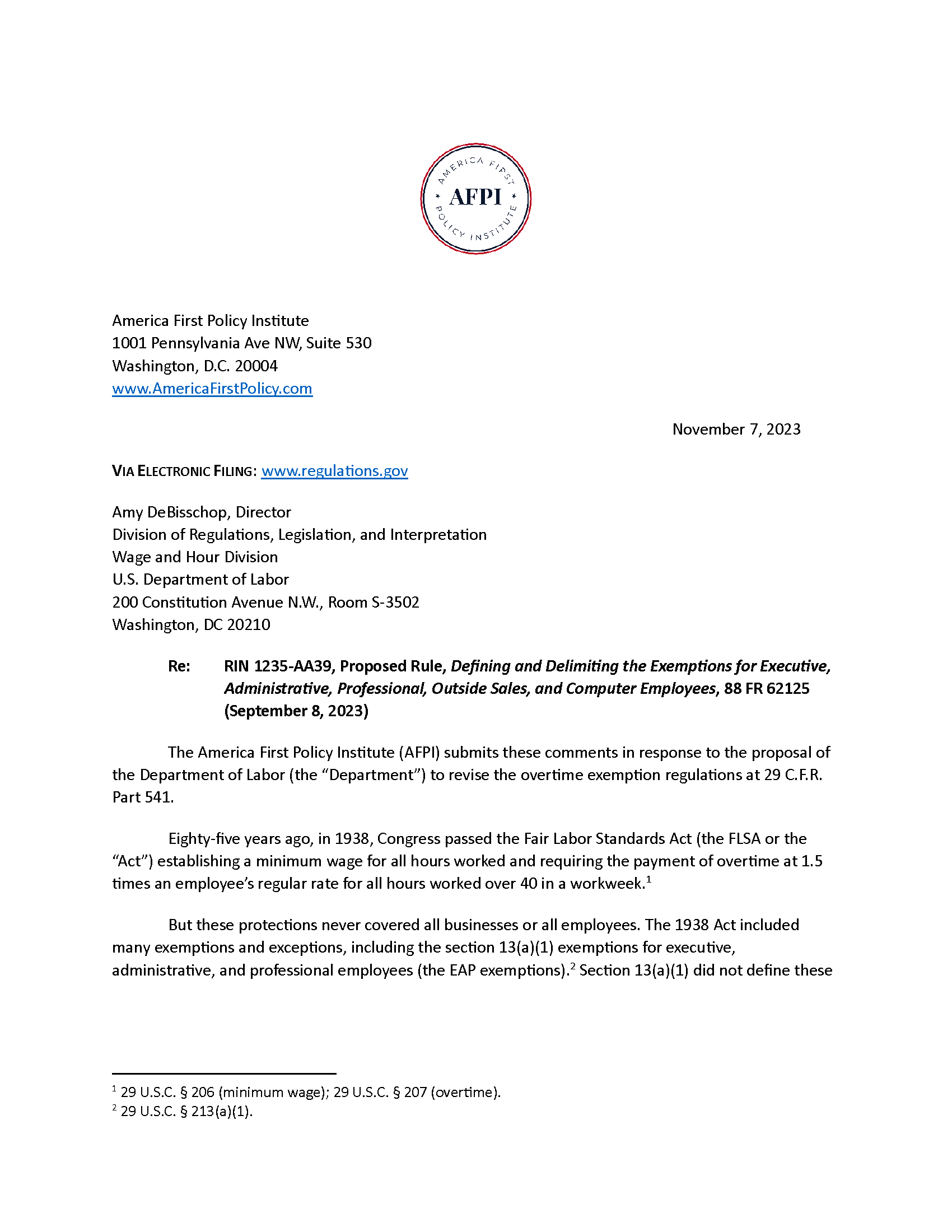AFPI Public Comment on DOL Salaried Overtime Rule
The America First Policy Institute (AFPI) submits these comments in response to the proposal of the Department of Labor (the “Department”) to revise the overtime exemption regulations at 29 C.F.R.
Eighty-five years ago, in 1938, Congress passed the Fair Labor Standards Act (the FLSA or the “Act”) establishing a minimum wage for all hours worked and requiring the payment of overtime at 1.5 times an employee’s regular rate for all hours worked over 40 in a workweek. But these protections never covered all businesses or all employees. The 1938 Act included many exemptions and exceptions, including the section 13(a)(1) exemptions for executive, administrative, and professional employees (the EAP exemptions).
Section 13(a)(1) did not define these terms. Rather, Congress provided that the terms would be “defined and delimited from time to time by regulations of the Secretary” subject to the provisions of the Administrative Procedure Act ( APA).
The Secretary’s power to define and delimit the EAP exemptions is not absolute. The Secretary is limited by the text of the FLSA itself and the APA. The Department’s proposed regulations exceed the Secretary’s authority by: (1) including any compensation requirement for the exemptions; (2) setting a minimum salary level for exemption that excludes millions of employees who perform executive, administrative, and professional duties; and (3) providing for automatic updates to the earning requirements without further notice-and-comment rulemaking.
Not only is the proposed rule unlawful, but it is also bad policy. This proposed rule would hurt salaried employees, effectively converting them to hourly employees and reducing their job flexibility without increasing their pay. Also, the Department seems uncaring of the impact of its proposal on lower-wage industries and small businesses and in rural areas—all of which would bear a disproportionate share of the admitted annual cost to businesses of between $1.5 billion and $2.7 billion.4 According to the Department’s data, its proposal will cost the retail sector $287.6 million annually, the healthcare sector $321.5 million annually, and the hospitality sector $105.1 million annually—nearly half the costs imposed on just three industries. Small businesses will also bear almost half the costs: at least $776.8 million annually.6 The Department estimates its proposal will cost employers in the South Census Region $963.3 million annually.
